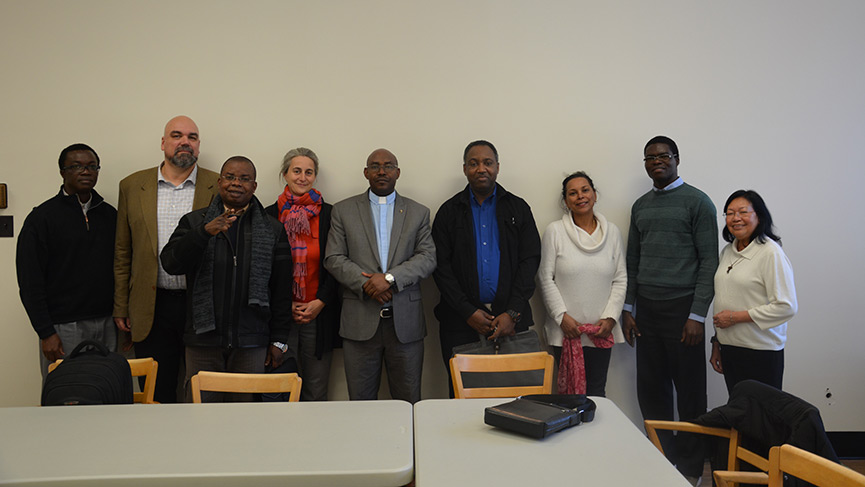Hospitality: The Church’s brick and mortar

Montreal
What a beautiful Church we have in Quebec! Its richness and diversity are mirrored in its faithful. How does everyone’s uniqueness contribute to our work to serve our people in a better way?
“Go from your country and your kindred and your father’s house to the land that I will show you.” (Gn 12: 1)
Last Saturday, an unusual day session took place for the first time at the Archdiocese of Montreal: discussions were held on how to welcome foreign pastoral workers (priests, deacons, members of an Institute of Consecrated Life or missionary laypeople). These people have their own views on worship, their own habits and ways of doing things. This is seen as richness; yet, they must adapt to Quebec realities. The Act Respecting Fabriques, specific to the province of Quebec, illustrates exactly the adjustment issues faced by the new pastoral workers and by their guides here in the Church. How can they frame their actions, which processes are they to use, how can they fulfill their role?
Offering hospitality also means accepting the hospitality
Professor Martin Bellerose, director of the Institut de pastorale des Dominicains and specialist of migration theology, did the teaching on that day. He came to identify very quickly the keys to successful integration. His analysis was based on many biblical passages. He showed us that the Old and the New Testaments invite us to constantly mirror the ways of the first Christian communities. It’s all about evangelizing and being evangelized by strangers. Citing Genesis, he said: “Welcoming people means reaching out to them, but it also implies reciprocity.” In the morning, his teachings were punctuated by the constant back and forth with the assembly. Everyone, including the teacher, reached the conclusion that people’s ability to adjust to otherness while keeping one’s own identity was the key to having a beautiful, profound and peaceful community.
“For just as the body is one and has many members, and all the members of the body, though many, are one body, so it is with Christ.” (1 Co 12:12)
After his theoretical teachings in the morning, Professor Bellerose suggested that small group discussions be held in the afternoon. The goal was to understand how to avoid pitfalls when we welcome people or when they welcome us. He seized the occasion to remind the assembly that our enemy is not people’s ignorance, but the Evil One using division, fear and judgment as means to manipulate the outcome. To avoid his attacks, he invited us to go back to the essential, the ultimate finality in our faith: our relationship with Christ. This relationship enables us to love and to be loved, thus, to make sense of the fact that we serve people humbly.
What does the future hold?
This first edition was a real success. Participants were very happy for having had the chance to share moments of communion. The potluck and the reflection periods in small groups gave them an opportunity to express themselves on the subject and to get to know each other better. Professor Bellerose said he was clearly thinking about repeating the experience. He hopes this session day will become, over time, a necessity to get to understand each other better, as we extend our hospitality and follow together in the footsteps of Christ.

Comment
0 Comment
Add new comment